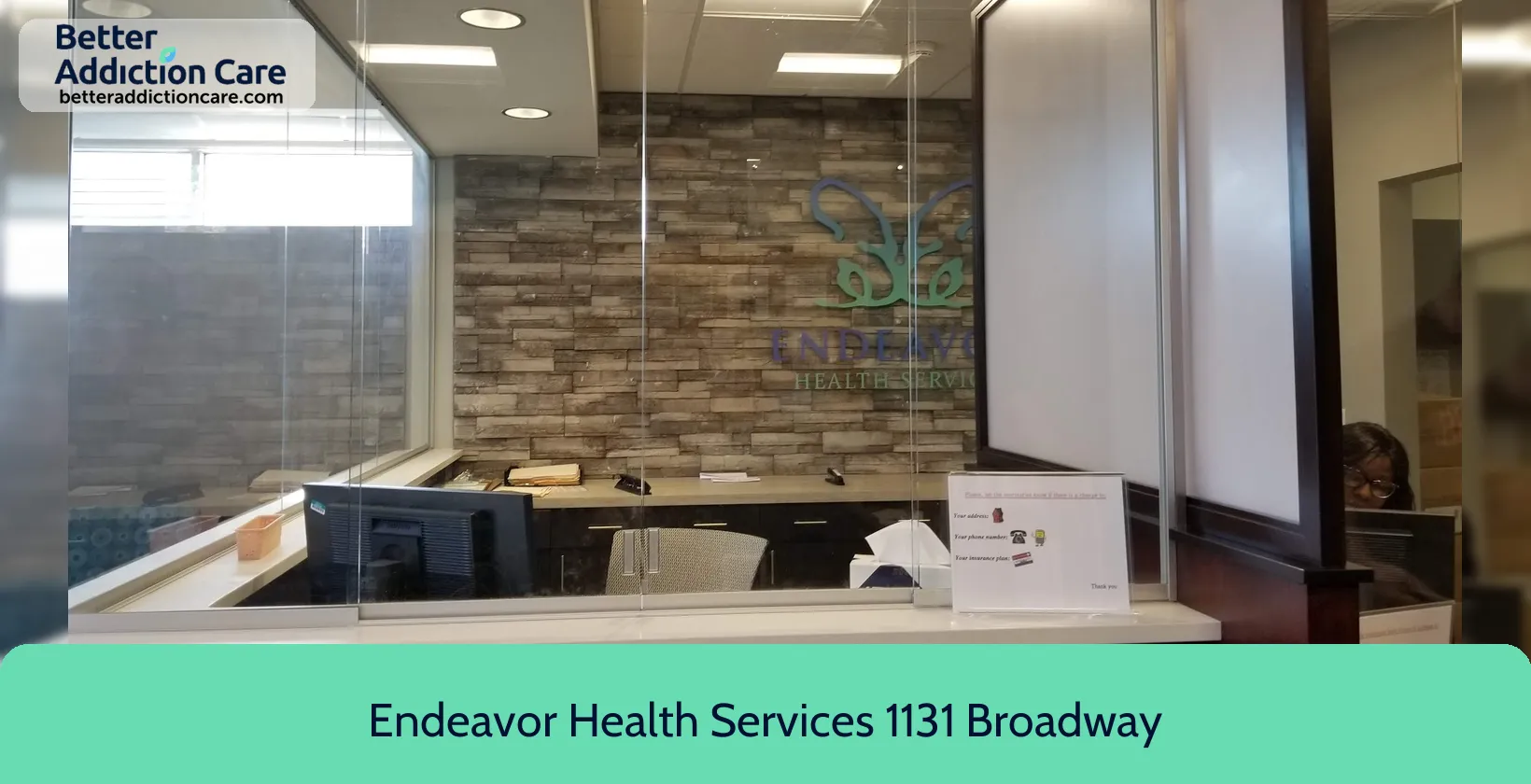Endeavor Health Services 1131 Broadway Street
Overview
Endeavor Health Services 1131 Broadway Street is a mental health treatment center for people seeking treatment near Erie County. As part of their treatment modalities for recovery, Endeavor Health Services 1131 Broadway Street provides individual psychotherapy, couples/family therapy, and cognitive behavioral therapy during treatment. Endeavor Health Services 1131 Broadway Street is located in Buffalo, New York, accepting cash or self-payment for treatment.
Endeavor Health Services 1131 Broadway Street at a Glance
Payment Options
- Cash or self-payment
- Medicaid
- Medicare
- State-financed health insurance plan other than Medicaid
- Private health insurance
Assessments
- Screening for tobacco use
- Comprehensive mental health assessment
- Comprehensive substance use assessment
- Screening for mental disorders
- Screening for substance use
Age Groups
- Seniors or older adults
- Young adults
- Adults
- Seniors
Ancillary Services
- Assertive community treatment
- Case management service
- Court-ordered outpatient treatment
- Diet and exercise counseling
- Education services
Highlights About Endeavor Health Services 1131 Broadway Street
7.58/10
With an overall rating of 7.58/10, this facility has following balanced range of services. Alcohol Rehabilitation: 8.00/10, Drug Rehab and Detox: 8.15/10, Insurance and Payments: 6.00/10, Treatment Options: 8.18/10.-
Treatment Options 8.18
-
Drug Rehab and Detox 8.15
-
Alcohol Rehabilitation 8.00
-
Insurance and Payments 6.00
Accreditations
State mental health department:
State mental health department accreditation refers to the process of evaluating and certifying the quality and standards of a state's mental health department, ensuring that it provides high-quality services and meets specific criteria for mental health care. The accreditation process is performed by a third-party organization and helps to improve the overall care and treatment of individuals with mental health conditions.
Treatment At Endeavor Health Services 1131 Broadway Street
Treatment Conditions
- Alcoholism
- Mental health treatment
- Substance use treatment
- Co-occurring Disorders
Care Levels
- Outpatient
- Regular outpatient treatment
- Aftercare
Treatment Modalities
- Individual psychotherapy
- Couples/family therapy
- Cognitive behavioral therapy
- Dialectical behavior therapy
- Integrated Mental and Substance Use Disorder treatment
Ancillary Services
Languages
- Sign language services for the deaf and hard of hearing
Additional Services
- Pharmacotherapies administered during treatment
- Mentoring/peer support
- Breathalyzer or blood alcohol testing
Special Programs
- Clients with co-occurring mental and substance use disorders
- Criminal justice (other than DUI/DWI)/Forensic clients
- Clients who have experienced trauma
- Persons 18 and older with serious mental illness (SMI)
- Persons with post-traumatic stress disorder (PTSD)
Get Help Now
Common Questions About Endeavor Health Services 1131 Broadway Street
Contact Information
Other Facilities in Buffalo

6.77

7.36

7.30

7.30

7.33

7.40

6.96

7.14
DISCLAIMER: The facility name, logo and brand are the property and registered trademarks of Sister's of Charity Hospital - STAR Saint Vincent Outpatient 1, and are being used for identification and informational purposes only. Use of these names, logos and brands shall not imply endorsement. BetterAddictionCare.com is not affiliated with or sponsored by Sister's of Charity Hospital - STAR Saint Vincent Outpatient 1.

